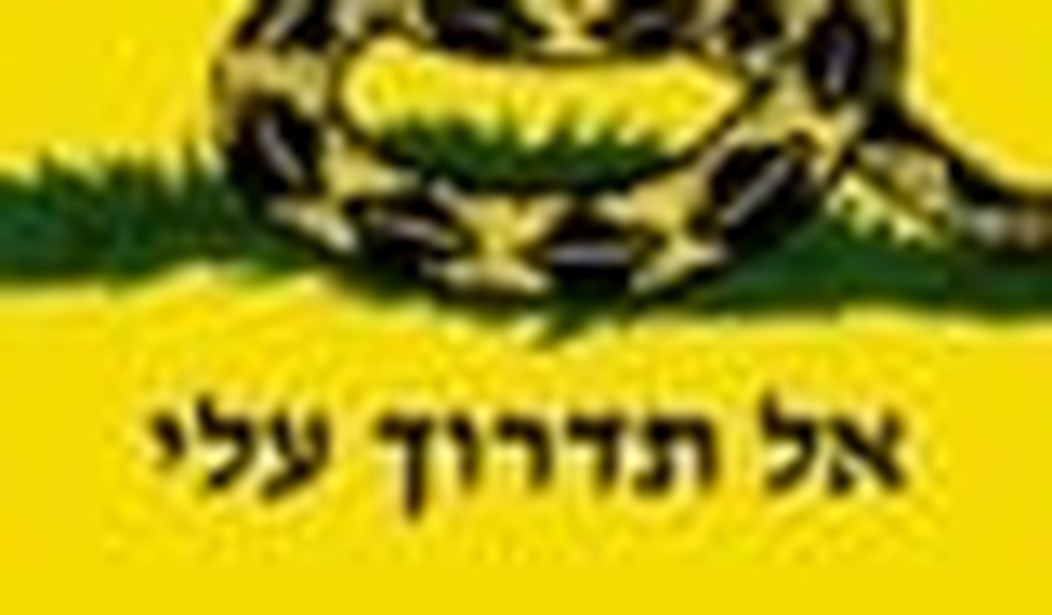The turnout at its inaugural rally wasn’t great — only 100 activists showed up — but Israelis displaying piles of tea bags and “Say No to Obama” signs were still an unusual and interesting sight.
The newly anointed Israeli Tea Party movement has adopted the symbols of the American Tea Party movement to express their dissatisfaction with both the Middle East policy and the economic philosophy of the Obama administration. But the focus of the inaugural event was addressed to both Washington and Jerusalem — it was a call for the U.S. president to stop pressuring Israel on the issue of renewing a settlement freeze, as well as a message to the Israeli government to resist that pressure. Said Likud MK Danny Danon, a member of the group of Likud activists behind the Tea Party initiative:
We are here today to send a very clear message to Mr. Obama: Stop bullying our prime minister!
The true godfather of the Israeli Tea Party is former Knesset deputy Michael Kleiner, an activist in the Likud Party who intends to send a strong anti-Obama message both to the Israeli public and to Prime Minister Binyamin Netanyahu — whose resolve Kleiner fears may be “crumbling,” and who Kleiner fears may make concessions as a result of Obama’s “arm-twisting.” A continued freeze, Kleiner told reporters against a backdrop of black curtains and red-and-black balloons, is a “death trap for Israel.”
Kleiner was emphatic in his insistence that this did not represent an effort to influence the U.S. elections. But the timing of the event, just days before the midterms, was certainly not a coincidence. At a time when all eyes are on the United States, Kleiner is clearly hoping that a weakened Obama will be in less of a position to twist Netanyahu’s arm in negotiations with the Palestinians.
In an interview with the British Telegraph before the rally, Kleiner compared the U.S. president to King George III. He said — like the real Boston Tea Party said of the king — that Obama was a force from abroad pressuring Israel to take steps that work against its own interests:
We believe President Obama is trying to force us to do things that most Israelis believe are very dangerous. We are being blackmailed to sacrifice our security and vital interests by another country.
The new movement appears to be a marriage between two groups. Those like Kleiner see themselves as part of an effort representing a front within Likud who want Netanyahu to stand up to pressure from the U.S. on the issue of reinstating a freeze on settlement construction. This isn’t the first time that Kleiner has applied pressure on Netanyahu from the right. In 1999, during Netanyahu’s first go-round as prime minister, Kleiner, at the time a Knesset member, and two other Likud MKs broke off from the Netanyahu-led Likud in protest of territorial concessions Netanyahu made. Their rebellion was one of the factors that contributed to the weakening of Netanyahu politically and his subsequent defeat by current Defense Minister Ehud Barak.
This time around, in addition to internal parliamentary pressure, Kleiner hopes to draw on grassroots sentiment for his crusade — taking a page from the U.S. Tea Party playbook:
I’ve been following U.S. politics and I think that the Tea Party phenomenon is something refreshing, with the wide participation of people, and not just politicians, and its spontaneity.
Though the “Say No to Obama” message was the primary focus on Sunday, the movement also includes those who sympathize with the U.S. Tea Party’s economic message.
Boaz Arab of the Jerusalem Institute for Market Studies (JIMS) told Reuters that he joined the movement in order to send the message that:
Israel needs a capitalistic movement to free the economy from its burden of high taxes, high government spending, and a bloated administration.
Most of the Israeli media ignored the event. Those who chose to comment scoffed at the small number it drew, and dismissed the Israeli Tea Party as a stunt that would not necessarily gain momentum. There were also chuckles at the cultural incongruity of attempting to relocate an event so strongly based in American history and culture to the Middle East. From the Jerusalem Post:
…[T]he rally hardly resembled its counterparts in the States. No country music was heard, there were no Moshes in U.S. Revolutionary War-era garb, and no Ya’acovs in powdered wigs with faux muskets hollering, “No taxation without representation.”
The event also lacked the Barack Obama as the Joker/Karl Marx/witchdoctor posters commonly seen at such events in the United States. In fact, while there were many signs reading “Say no to Obama!” in Hebrew, English, and Russian (no Arabic), nary a one had “Hussein” on it, , and there were no depictions of the former Illinois senator wearing Islamic garb.
So Israel’s Tea Party hardly enjoyed an auspicious beginning. But its organizers can take heart when they consider the way in which the U.S. Tea Party movement was ridiculed and dismissed at its inception. After the significant role it played in this year’s midterm election campaign, no one is laughing anymore.









Join the conversation as a VIP Member